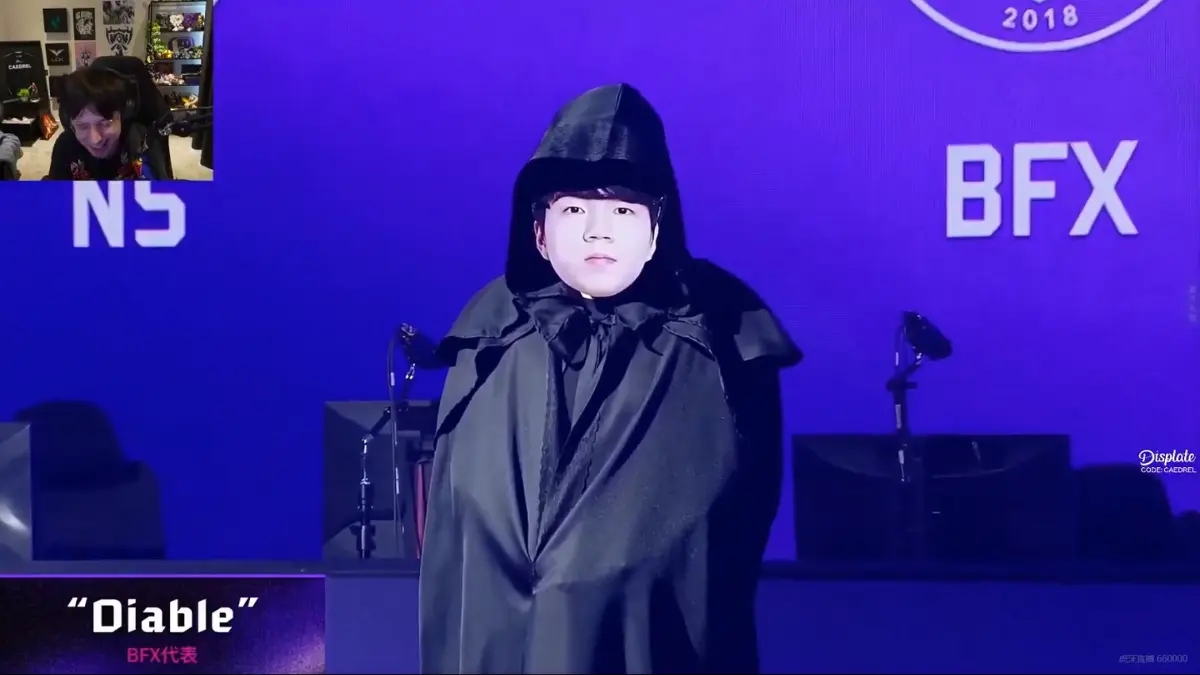The Asia Invitational 2025 kicked off with an opening ceremony that would make any theater director proud. The only problem? None of the competing League of Legends players were actually there.
Instead of pro players walking onto the stage, the ceremony featured performers wearing masks depicting player faces and name tags identifying which team members they represented. The masked stand-ins executed choreographed routines for cameras and a venue audience while the actual competitors prepared to play from home.
The unusual setup exists because ASI 2025 is running entirely online. Teams are competing remotely rather than gathering at a LAN venue, but organizers still wanted a physical opening show for broadcast.
Multiple sources indicate Chinese streaming platforms are hosting the event rather than Riot Games. This explains several production choices, including the decision to stage a ceremony without flying teams internationally for an online tournament.
Why stand-ins made sense
The tournament reportedly came together quickly on the esports calendar. That compressed timeline creates serious logistical problems for international events.
Visa processing for players crossing borders typically requires weeks or months of lead time. Teams also need to arrange travel, accommodations, and practice facilities. When an invitational gets announced late in the season, those pieces often don’t align in time.
Running the competition online solves those problems but creates a different challenge: how do you open an esports event without players on stage?
The production team’s answer was to lean into spectacle anyway. Trained performers can execute more dynamic choreography than most players would attempt, and masks allowed the show to represent teams without requiring anyone’s physical presence.
Riot’s major international events like Worlds and MSI typically feature months of planning. Those productions include live music performances, augmented reality effects, and carefully staged player walkouts. Third-party invitationals working with smaller budgets and tighter timelines operate differently.
Chinese streaming platforms including Bilibili, Huya, and Douyu have increasingly financed their own League of Legends events. These tournaments prioritize broadcast entertainment value while controlling costs compared to full international LANs.
The actual tournament matches proceed with teams competing from their home regions. Online cross-region play requires careful server selection and ping management to keep competition fair across different network conditions.

